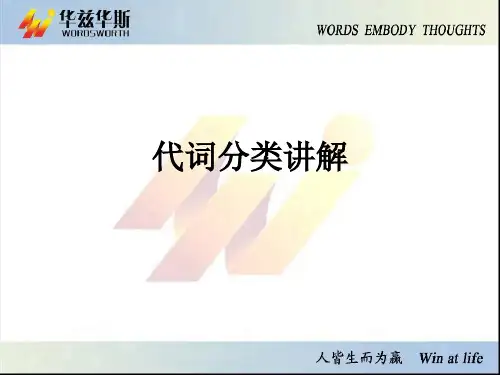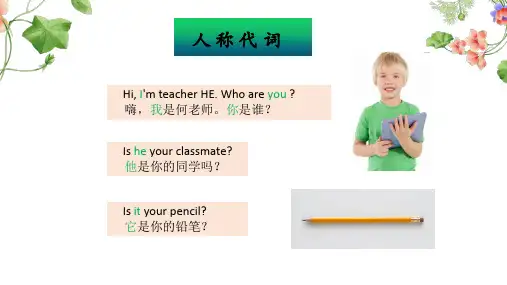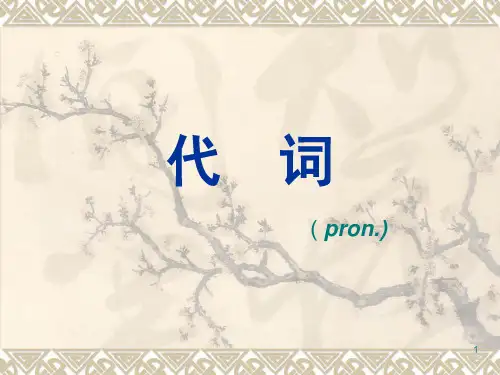二、物主代词 形容词性 my your his her its our their 名词性 mine yours his hers its ours theirs ①形容词性物主代词后边必须跟着它所修饰的 名词。 your car/ my desk/ its tail ②名词性物主代词后边不能再跟名词。 My bag is old but hers is new.
A: Each person has his own weak and strong points.( 每个人都有自己的优缺点) B: Every person has his own weak and strong points. (人人都有优缺点)
(2) each 表示两个以上中的“每个”; every表示三个以上中的“每个” There is a line of trees on each side of the river. Every student in the class likes English.
四、不定代词
1.some 和 any
Some 和 Any 当 “一些” 既可以修饰可数名词也 可以修饰不可数名词, some 一般用在肯定句, any 用在否定句或疑问句 A;some/any + ns (可数名词复数) some/any + n. ( 不可数名词) (1)There are some rice in the bowl.
3) Everyone 与 every one的区别: everyone意为“每人”,“人人”,只指人,不 指物,后面不能跟of短语;every one 意为 “每个”,通常用来指物,后面能跟of短语 1) Is everyone here today? 2) Every one of the flowers looks very nice. 4 )Everyday 与 every day的区别 everyday是形容词,意思是”每天的”,”日常的 ”,只能作定语;every day是副词,意思是”每 天”,作状语. Everyday English We have English leach 和 every Each + n +V (每个/人人/强调个体) Each of + ns + 谓语单数 Sb+ v….each. Every + N. +v谓语动词单数 Every + 数词+ns(名词复数) 表示每隔





